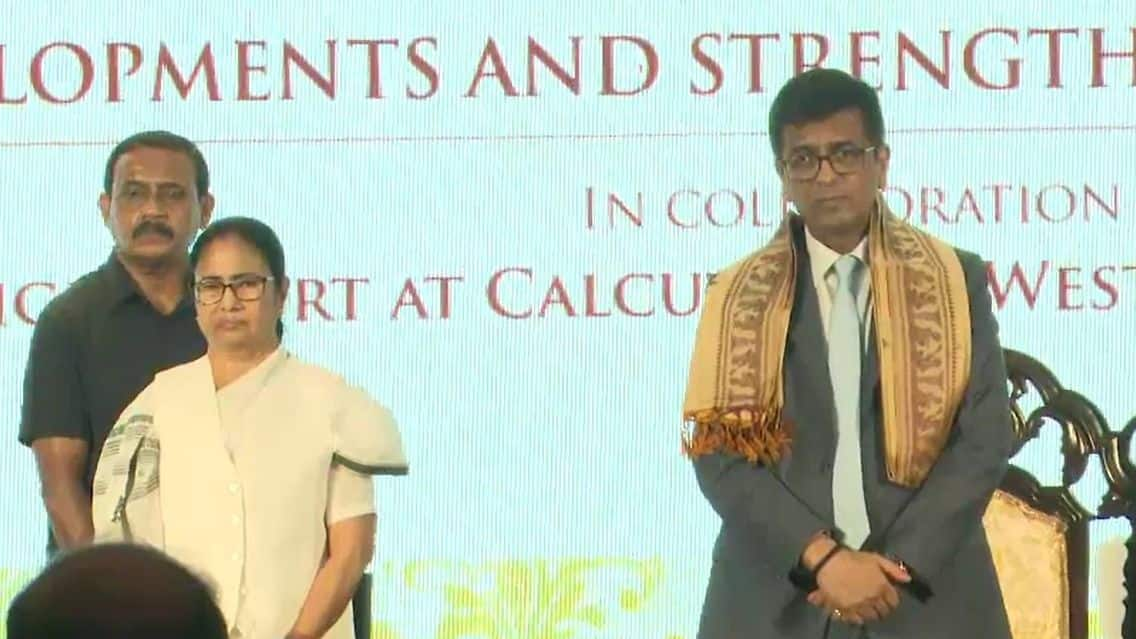
West Bengal CM Banerjee and CJI advocate for unbiased judiciary
What's the story
West Bengal Chief Minister Mamata Banerjee and Chief Justice of India (CJI) DY Chandrachud have urged the judiciary to remain free from political bias.
Speaking at a conference in Kolkata, Banerjee described the judiciary as an "important temple" for citizens, emphasizing its need to be "absolutely pure, honest and sacred."
She also highlighted the judiciary's role as the last frontier for upholding constitutional rights and delivering justice.
Judicial support
Banerjee highlights government's contribution to judiciary
To cite her government's commitment to the judiciary, she said that it gave ₹1,000 crore for the latter's development and provided land for constructing a new high court in Kolkata's Rajarhat area.
"If the judiciary cannot help common people, where will they get justice?" she questioned.
"We have 88 fast-track courts. Earlier, the government should have given us assistance for setting up fast-track courts...But now, we are the only state having 88 fast-track courts," she said.
Judicial duty
CJI Chandrachud stresses on judges' role and responsibility
Echoing Banerjee's sentiments, CJI Chandrachud emphasized that judges should not let personal beliefs influence their rulings.
He cited instances where judges denied protection to interfaith couples without parental consent.
"We are servants of the Constitution, not masters," he stated, underscoring the judiciary's role as servers of the people.
He also cautioned against viewing judges as deities and highlighted their duty to serve citizens seeking justice.
Women empowerment
Chandrachud advocates for women empowerment in judiciary
Chandrachud also addressed the issue of women empowerment in the judiciary, adding that amenities for women are lacking.
"Women have multiple things to do. I, as CJI, started an initiative where meals for Rs 25 can be served," he said.
He further urged the legal community to strengthen such measures and support young women entering the profession so that they can take charge.
Technological solution
CJI suggests e-filing to address delays in justice
Regarding concerns about delays in justice due to routine adjournments, Chandrachud suggested e-filing as a solution to make court procedures more accessible.
"We must open up access to the Supreme Court for everyone. A citizen does not know the procedures. E-filling allows citizens to access procedures. Our duty is to see that orders are implemented through technology," he said.
Chandrachud was in Kolkata to celebrate the bicentenary of the Calcutta High Court's Bar Library Club.